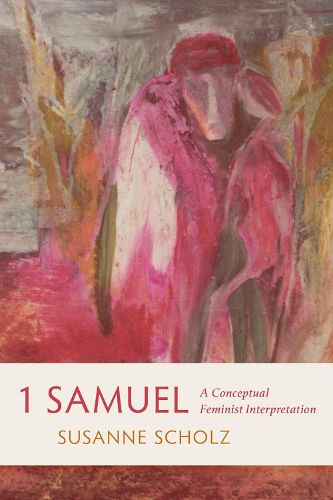Readings Newsletter
Become a Readings Member to make your shopping experience even easier.
Sign in or sign up for free!
You’re not far away from qualifying for FREE standard shipping within Australia
You’ve qualified for FREE standard shipping within Australia
The cart is loading…






Recent biblical studies, especially feminist interpretations, evince keen awareness of how the constitutive role of the contextual realities--for example, race, class, and gender--of the texts but also of the interpreters themselves, shapes our readings and the range of questions and insights they yield. With critical awareness of these realities, whole new vistas open up on the Bible and its world.
First Samuel presents a surprisingly fruitful test case for such interpretations, shedding important light on this historical narrative and our reading of it in a world of ethnic, geopolitical, and gender turbulence.
In alignment with the insights of intersectional biblical hermeneutics, Scholz's conceptual feminist approach to 1 Samuel advances five key thematic areas. They include the geopolitics of land and gender, the variously positioned male characters, the depicted governance model of the monarchy, the ethnonational stereotypes embedded in references to the (male) Philistines, and the inscription and erasure of female characters as mothers, wives, daughters, unnamed women, and witch.
Most feminist biblical criticism has centered on female figures in the Bible or reconstructing the situations of women in that world. This work is different: It focuses on the convergence of gender relations, geopolitics, emerging nationalisms, and archaeology and history--both then and now, in the world of the text and in the interpreter's own world. Equally alert to the telling details and the unquestioned assumptions of our reading, the result is a fully critical and radically self-aware encounter with the text, its context, and its reverberations in our own day.
Scholz's strikingly insightful analysis sets a new standard for interpreting 1 Samuel and indeed for approaching biblical studies.
$9.00 standard shipping within Australia
FREE standard shipping within Australia for orders over $100.00
Express & International shipping calculated at checkout
Recent biblical studies, especially feminist interpretations, evince keen awareness of how the constitutive role of the contextual realities--for example, race, class, and gender--of the texts but also of the interpreters themselves, shapes our readings and the range of questions and insights they yield. With critical awareness of these realities, whole new vistas open up on the Bible and its world.
First Samuel presents a surprisingly fruitful test case for such interpretations, shedding important light on this historical narrative and our reading of it in a world of ethnic, geopolitical, and gender turbulence.
In alignment with the insights of intersectional biblical hermeneutics, Scholz's conceptual feminist approach to 1 Samuel advances five key thematic areas. They include the geopolitics of land and gender, the variously positioned male characters, the depicted governance model of the monarchy, the ethnonational stereotypes embedded in references to the (male) Philistines, and the inscription and erasure of female characters as mothers, wives, daughters, unnamed women, and witch.
Most feminist biblical criticism has centered on female figures in the Bible or reconstructing the situations of women in that world. This work is different: It focuses on the convergence of gender relations, geopolitics, emerging nationalisms, and archaeology and history--both then and now, in the world of the text and in the interpreter's own world. Equally alert to the telling details and the unquestioned assumptions of our reading, the result is a fully critical and radically self-aware encounter with the text, its context, and its reverberations in our own day.
Scholz's strikingly insightful analysis sets a new standard for interpreting 1 Samuel and indeed for approaching biblical studies.